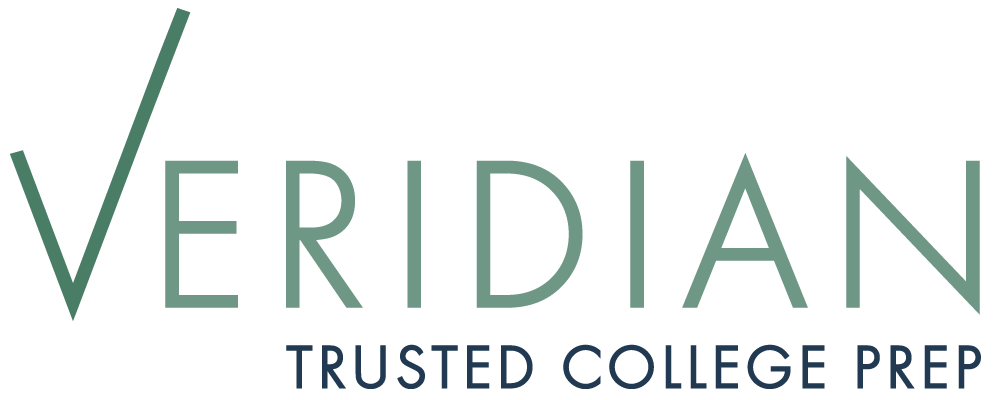The Rise of AP in College Admissions
Not long ago, the College Board dropped a bombshell decision: the SAT Subject Tests are dead.
Though in the past many selective schools required SAT Subject Tests as part of their extensive applications, the truth is that many had already dropped this requirement. This mirrors the test-optional approach that more and more schools are embracing — a trend that has been accelerated by the pandemic.
And certainly, the pandemic played a major role in this decision. The College Board has struggled to offer tests in many areas where normal testing sites were closed for months. While it makes sense to finally put an end to an exam that had been falling in popularity anyway, the decision surprised nearly everyone — especially students who had already registered for the May and June tests (and presumably had already begun preparing).
So now what?
Will AP Tests Fill the SAT Subject Test Gap?
Though some advocates are pleased to see a standardized test eliminated, the reality is that standardized testing is definitely not going away any time soon. Though College Board CEO David Coleman says he’s glad to “reduce unnecessary anxiety” for students, the company is really just planning to replace the SAT Subject Tests with AP exams.
This makes sense for two reasons. First, AP tests also measure performance in many subjects, so they offer a chance for students to show what they know beyond the standard SAT material in math and language arts. Having two tests that measure essentially the same thing is probably unnecessary.
The AP tests have also grown in popularity over the past several years, exploding in growth even as the SAT Subject Test administration declined. AP testing is also used internationally, and the College Board stands to make a lot of money if the test becomes a global standard for measuring student success in various subjects. They have an enormous incentive to promote the AP program.
There’s definitely a debate to be had about whether shifting the focus to AP tests will help level the playing field or just create a new arms race for already high-performing high schools. All remains to be seen.
What’s important for you right now is to prepare for the college admissions process as it currently stands.
AP Exams in the Post Subject Test Era
For strong students interested in competitive colleges and universities, the good news is that this announcement shouldn’t cause an earth-shattering change to your plans. That’s because it has always been smart to take as many AP classes as you felt comfortably able to handle — and certainly ones in subjects you enjoy.
This was good advice in the past because college admissions officers look very closely at course rigor when analyzing your transcript. They want to see that you not only obtained good grades, but that you challenged yourself by taking classes that stretched you and prepared you for college work.
AP courses are designed to do just that, and taking the test provides a valuable way for admissions folks to assess your performance. Like any standardized test, it helps them compare students across the country by a single measure, instead of trying to parse out if one high school’s grading system is more rigorous than another. We have every reason to believe that universities will continue to value AP scores as part of a robust application — and maybe give them more weight since the tests look to be heading into “gold standard” territory.
Even for colleges with test-optional admissions, strong AP scores can help set you apart. So here’s my advice:
Take AP courses in subjects you like and/or excel in, but don’t overload yourself — that can backfire if you’re stretched too thin. Remember that you’re a person, not a resume, so don’t sacrifice everything else in your life just to take on more AP work.
Build your core skills to prepare for the exams. Your AP teachers will cover new material, but it’s also important to have the basics down. For example, most AP exams have a significant writing component, so you’ll want to boost your writing skills if you have any weaknesses. Working with a teacher or a tutor to catch up — particularly after pandemic learning loss — can definitely help.
Prepare for the exams with focused practice. Like any standardized test, you will improve your performance on AP exams with practice — but only if you commit to focused sessions in which you assess your weaknesses and track your progress. (Read more about what effective practice looks like here.)
Take the tests! This should go without saying, but I know that sometimes students take an AP course without signing up for the exam. With AP Exams poised to replace SAT Subject Tests, it’s important to take the test so you have a “replacement score” to show for your work.
What if My School Isn’t IB and Doesn’t Offer AP?
It’s important to note here that not every high school offers AP courses and exams. Yes, the program has become enormously popular across the country, but there are still many excellent high schools that don’t participate. In fact, if your school doesn’t offer AP classes, you’re actually in some pretty great company. There are many competitive high schools that don’t offer AP, including:
Fieldston School, The Bronx, NY
French-American School of New York, Mamaroneck, NY
Georgetown Day School, Washington, DC
Greenwich Country Day School, Greenwich, CT
Riverdale Country School, The Bronx, NY
Scarsdale HIgh School, Scarsdale, NY
Sidwell-Friends, Washington, DC
Why are such renowned schools shunning the AP program? According to former professor and Atlantic contributor John Tierney, “AP courses are a forced march through a preordained subject, leaving no time for a high-school teacher to take her or his students down some path of mutual interest. The AP classroom is where intellectual curiosity goes to die.”
VeridianPrep Tip: some students take AP exams even though their school doesn’t offer AP; however, those students often need to put in a fair amount of work to prepare because their school curriculum doesn’t fully align with that of the exam. And if their classroom teacher isn’t giving AP practice materials, they’re also unfamiliar with the test format and requirements.
That’s a strong opinion, but it makes sense that schools already well known for their quality would prefer to preserve their own strong curricula and teaching rather than sign on to follow a prescribed approach from an outside source. These schools — and by extension, their students — can, to at least some extent, count on college admissions officers to recognize the intellectual rigor of their coursework without AP’s seal of approval.
So if you attend a school that has never offered AP courses or has dropped its program, it could actually be a good thing. Or at least, it’s not necessarily a bad thing. When AP courses are available but not taken, that’s a red flag to a college, and that student will have to work to justify the choice not to take advantage of the most challenging courses available. But if you don’t have the option, the lack of AP courses on your transcript shouldn’t raise eyebrows.
That said, if you don’t have AP courses at your school, you’ll want to find other ways to demonstrate your intellectual and academic potential. This means that your grades and main ACT/SAT scores are even more important. Likewise, your independent science research project, academic club participation, and/or personal passion projects will also play a larger role in rounding out your application.
Finally, a word of advice. It’s easy to get caught up into thinking that testing is the end-all of college admissions, but it’s not. Your grades and course rigor are even more important, and colleges also want to know that you are a person with varied interests and skills. So by all means, embrace AP exams when possible to show your knowledge, but don’t forget that there are many other ways to develop and share your talents, too.
Meet our team of top-notch subject experts can help you succeed on AP Calc AB/BC, AP English Lang & Comp or Lit., and the core AP Sciences: bio, chem, physics.

